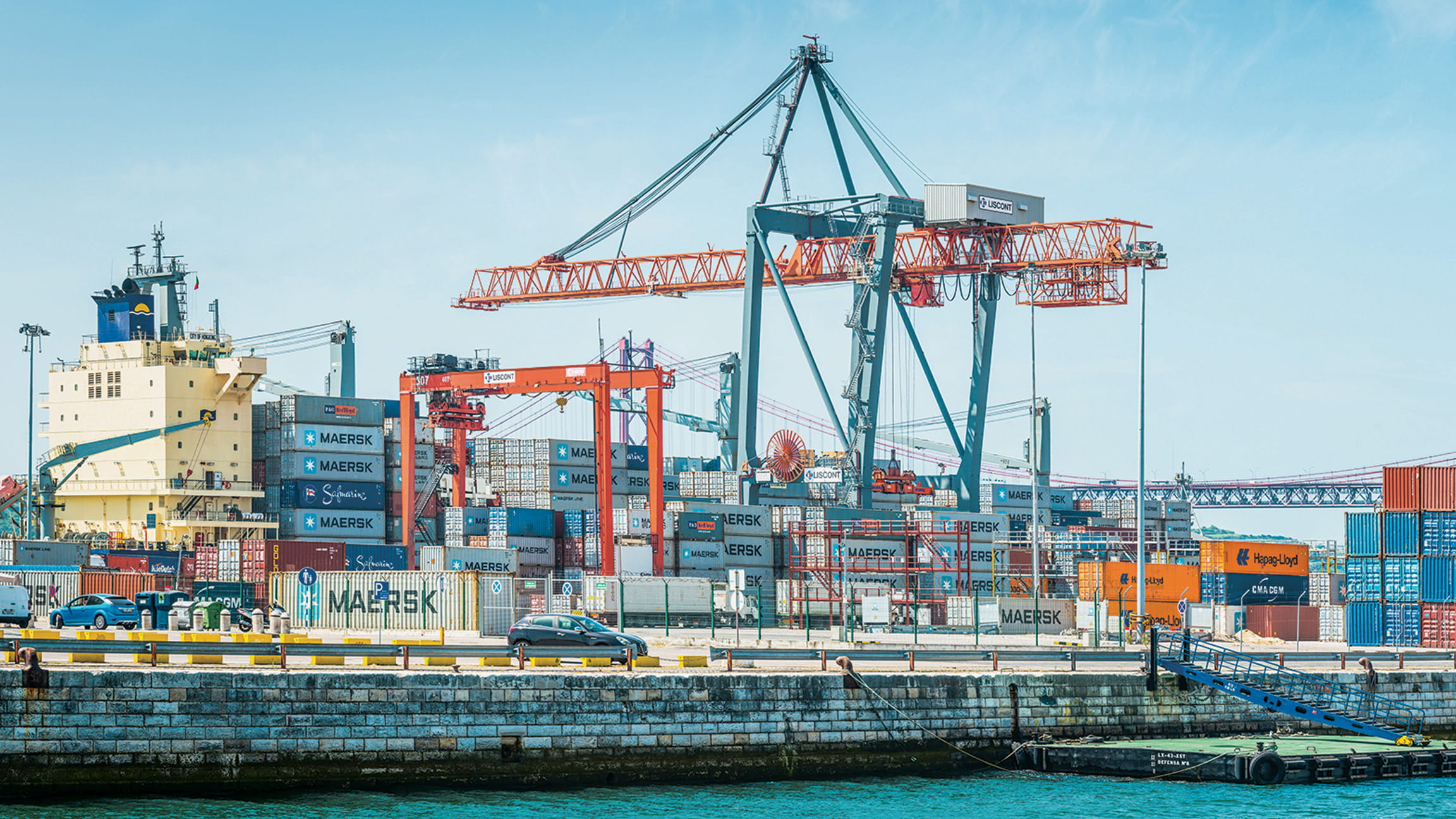Trump turns the tables on trade

Summary
As President Donald Trump ramps up the trade wars and retaliatory measures spread, investors are entering an unknown landscape – and no one knows what the US will do next. Yet given that trade makes up more than one-third of global GDP, it’s critical to assess what we do and don’t know about how the status quo could change.
|
Key takeaways
|
What will President Trump do next?
In his words and deeds, President Donald Trump has been busy transforming the terms and tone of global trade. While he has been careful not to flout WTO rules too flagrantly, he has used the issue of national security to target what he considers the unfair trade practices of others.
One of the reasons President Trump is focusing so intently on trade is that it appears to be a winning political issue. Trade-related issues poll well and the November US mid-term elections are approaching, so we expect to see a steady flow of trade-related headlines. That said, one challenge for the US president is that he may not be able to show enough progress on trade in time for the 2020 elections, particularly given that it has taken decades to build the status quo.
When his administration renegotiates trade agreements, we expect them to be more often bilateral rather than multilateral. President Trump believes that by keeping trade agreements between two countries, he can win the largest discounts and most favourable terms for the US.
He has also brought forth a new and rather extraordinary trade weapon: focusing on companies rather than just individuals or states. Among his targets have been Russian aluminium producer Rusal and Chinese cell phone maker ZTE. Given the potentially profound market implications, many corporations will be keen to avoid catching his attention.
President Trump has brought forth an extraordinary trade weapon: focusing on companies rather than just individuals or states
How will the US vs China battle shape up?
We expect President Trump and his administration will continue concentrating their attention on China – in particular, the sharing of and access to US technology – as the trade war between the two countries continues to grow.
Markets are laser-focused on the tension between the two largest economies in the world, particularly given the fact that they are led by two men who aren’t known for backing down. This raises the risk of one or both sides making a serious error – with a USD 1 trillion trade relationship at stake.
In the US-China trade war, one or both sides could make a serious error – and a USD 1 trillion trade relationship is at stake
China will have a hard time addressing the enormous trade imbalance it has with the US. The US does not make much that it can sell to China – which is precisely the point President Trump is making about his country’s large trade deficit. At the same time, the US’s tough negotiating stance is hamstrung by the fact that China is fully integrated into the global supply chain of consumer and manufactured goods, of which the US consumer is the largest purchaser. As a result, President Trump will have to balance being aggressive towards China while not hurting the consumers who vote for him.
For China – as well as Russia and a few others – President Trump’s new focus on restricting access to US technology has been a wake-up call. Chinese firms may now need to develop their own operating systems and source code to reduce further risk to their businesses. With the tech sector representing over 30% of US and Asian benchmarks, this could be seriously disruptive. Suppliers in Singapore, Taiwan and South Korea could even need to choose which nation they will supply: the US or China.
Could the trade war spread to the rest of the world?
President Trump is of the view that the world has taken advantage of the US for many years. With China and Russia under fire, could he next train his crosshairs on Germany, another major exporter? Or could China, the European Union (EU), Canada and others band together, using the Trans-Pacific Partnership or another preferential trade agreement to lower tariffs for each other while excluding the US? These scenarios may sound far-fetched, but they are worth preparing for given their serious implications for investors.
At the same time, Europe and the UK face their own trade war in Brexit, with no guarantee that negotiations will end smoothly. Brexit has the potential to disrupt the EU’s economic engine, which would hurt Germany, as the world’s largest exporter, as well as the UK, Europe’s largest consumer.
If the trade wars heat up, and retaliation rather than reciprocity becomes the order of the day, investors could face a host of new challenges. Retaliatory measures could be subject to the whims of politics, since industries, supply chains and consumers can be specifically targeted. Retaliation can also be difficult to price in and it can have the opposite effect. Consider autos and auto parts – the largest traded-goods sector, worth USD 1.3 trillion. Interference in the auto-supply chain may raise prices and reduce consumer demand, but it could also open up competitive opportunities along the supply chain.
If the trade wars cause more retaliation than reciprocity, investors could face a host of new challenges
China could retaliate by selling some of its USD 3 trillion worth of US Treasuries or by steeply devaluing its currency. We consider both scenarios to be unlikely, since China’s clear economic goal is to open up its markets and gain international credibility – plus where else could the country park 3 trillion US dollars? However, China is not without weapons: it could target large US corporations that do business in China, as it did with South Korea a few years ago.
What should investors watch out for?
1. Prepare for the end of NAFTA
President Trump has been ramping up tensions with Mexico, and it is entirely possible that the US could pull out of the North American Free Trade Agreement, particularly given the United States’ push for new bilateral agreements that bring greater benefits to the US. An end to NAFTA would affect not just goods but services: financials, tech, banks and insurance companies could all be hurt.
2. Keep an eye on non-tariff barriers
While news headlines are all about tariffs, the US and many other countries use other, non-tariff trade barriers to control foreign competition. For example, “rules of origin” have become more elaborate to seek to address the effects of unfair trade competition. In fact, when subsidies and state aid are included alongside tax relief and industry bailouts over recent years, more than 55% of trade interventions are not tariff-related.* Investors should focus on these more granular details, which will affect corporate prospects.
3. Watch for currency volatility
For decades, the US dollar has been the world’s reserve currency, but a growing number of countries have sought to diversify away from the dollar standard – and this may accelerate as trade wars evolve through retaliation. This process would create currency volatility in countries moving away from the dollar, and it would also pressure the US to fund its own deficits though higher savings and investments.
4. Mind the margins
Corporations around the world have been caught up in the trade-war maelstrom, and politics are winning over economic common sense. Margins could be affected as production is relocated away from the outsourcing partners that once made production cheaper and more efficient. Consider the global tech titans of the US: if they are no longer able to rely on labour and equipment from Asia, they may be forced to rebuild their manufacturing capabilities in the US or select from a dwindling list of allies.
Corporate margins could be hurt as production moves away from existing outsourcing partners
5. Guard against complacencyFor some time, US enthusiasm about President Trump’s tax cuts and deregulatory efforts has made markets complacent. So while the markets are nervous of the changes in trade, they seem to be counting on common sense to prevail, which is making them relaxed about the eventual outcome. This is already undermining corporations and investment.
Investing involves risk. The value of an investment and the income from it will fluctuate and investors may not get back the principal invested. Past performance is not indicative of future performance. This is a marketing communication. It is for informational purposes only. This document does not constitute investment advice or a recommendation to buy, sell or hold any security and shall not be deemed an offer to sell or a solicitation of an offer to buy any security.
The views and opinions expressed herein, which are subject to change without notice, are those of the issuer or its affiliated companies at the time of publication. Certain data used are derived from various sources believed to be reliable, but the accuracy or completeness of the data is not guaranteed and no liability is assumed for any direct or consequential losses arising from their use. The duplication, publication, extraction or transmission of the contents, irrespective of the form, is not permitted.
This material has not been reviewed by any regulatory authorities. In mainland China, it is used only as supporting material to the offshore investment products offered by commercial banks under the Qualified Domestic Institutional Investors scheme pursuant to applicable rules and regulations. This material is being distributed by the following Allianz Global Investors companies: Allianz Global Investors U.S. LLC, an investment adviser registered with the U.S. Securities and Exchange Commission; Allianz Global Investors GmbH, an investment company in Germany, authorized by the German Bundesanstalt für Finanzdienstleistungsaufsicht (BaFin); Allianz Global Investors Asia Pacific Ltd., licensed by the Hong Kong Securities and Futures Commission; Allianz Global Investors Singapore Ltd., regulated by the Monetary Authority of Singapore [Company Registration No. 199907169Z]; Allianz Global Investors Japan Co., Ltd., registered in Japan as a Financial Instruments Business Operator [Registered No. The Director of Kanto Local Finance Bureau (Financial Instruments Business Operator), No. 424, Member of Japan Investment Advisers Association and Investment Trust Association, Japan]; and Allianz Global Investors Taiwan Ltd., licensed by Financial Supervisory Commission in Taiwan.
Water: an essential and investable asset

Summary
The exceptionally hot summer afflicting large parts of the planet has highlighted the precariousness of a finite resource – clean, consumable water – that we too often take for granted. By helping to bridge the gap between water supply and demand, investors can help address a critical structural problem while adding growth potential to their portfolios.
Key takeaways
|







